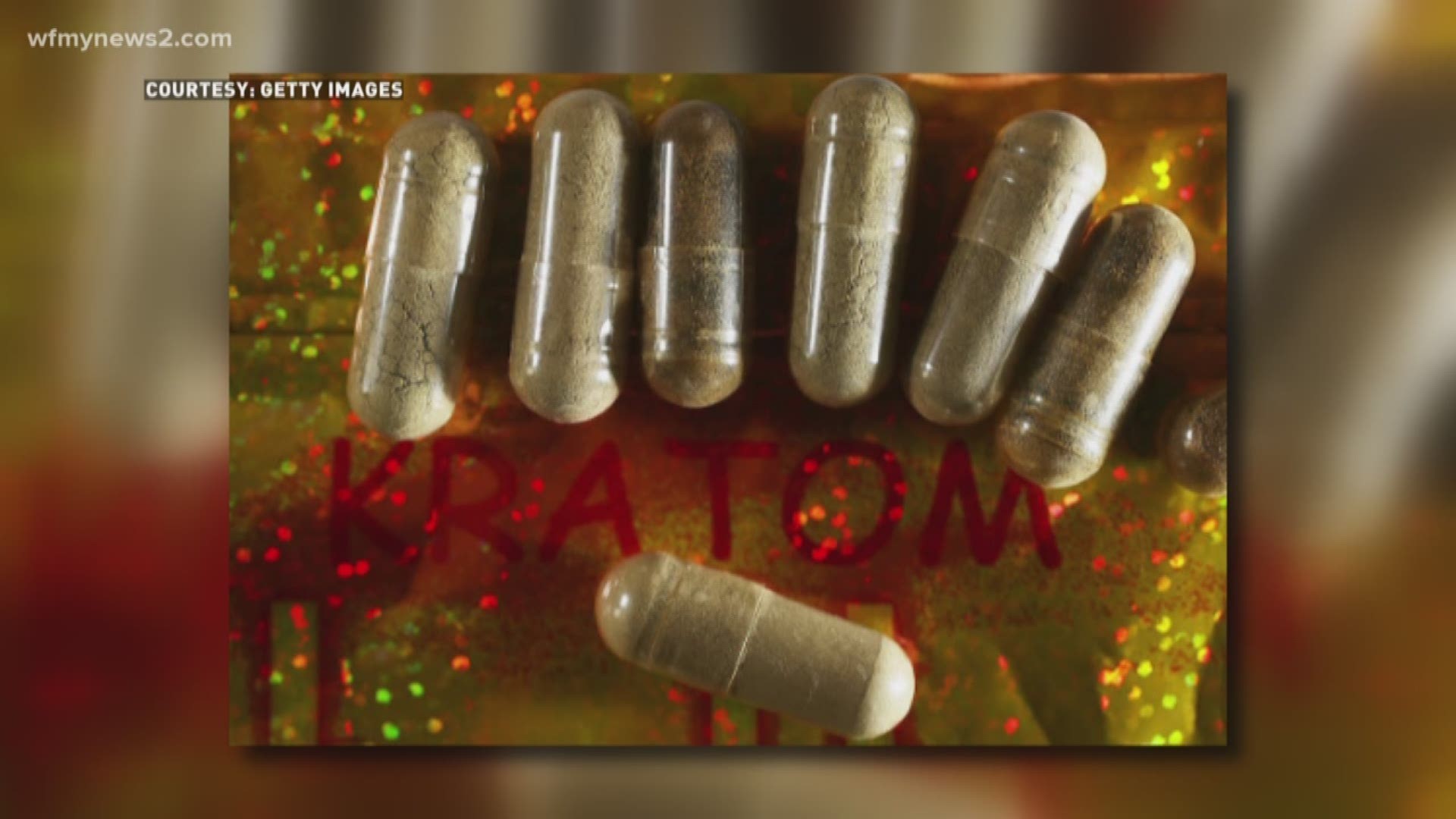Opioid addicts are turning to another drug in hopes of fighting opioid addiction and withdrawal. It's called Kratom.
Kratom is a plant from Southeast Asia that's imported into the U.S.
It's leaves are dried and crushed, then consumed orally by users.
Health experts say Kratom is an opioid substitute with opiate-like effects.
"Kratom acts as an opioid agonist, similar to Tramadol, providing a mild opiate high," said Michael Hollis with Legacy Freedom Treatment Centers in Charlotte. "The high consists of a small burst of energy with mild euphoric, warming effects. It is often used for its pain relief and anxiolytic properties."
WFMY News 2 spoke to an opioid addict who wanted to remain anonymous.
He described Kratom as a double-edged sword.
"I eventually got hooked on prescription painkillers at the age of 15. I used those for a while and then got back on Kratom. I gradually came off of the painkillers and started using the Kratom more. It helped me with the withdrawal symptoms and everything. But it was more substituting one addiction for the other."
Health experts say Kratom is by no means the answer to the opioid crisis because it's essentially a member of the opioid family.
"If you take Kratom for an extended period of time, you can become addicted to kratom and then you're back in the same boat that you started in," said Turiya Powell, Substance Abuse Counselor with Legacy Freedom Treatment Centers in Greensboro.
Kratom is banned in six states across the U.S., including Alabama, Wisconsin, Vermont, Tennessee, Indiana, and Arkansas.
In North Carolina, lawmakers banned Kratom for people under the age of 18.
The DEA attempted to place Kratom on the Schedule I Drug List last year, but chose not to.
The list is for drugs with a high potential for abuse, like ecstasy and heroin.

